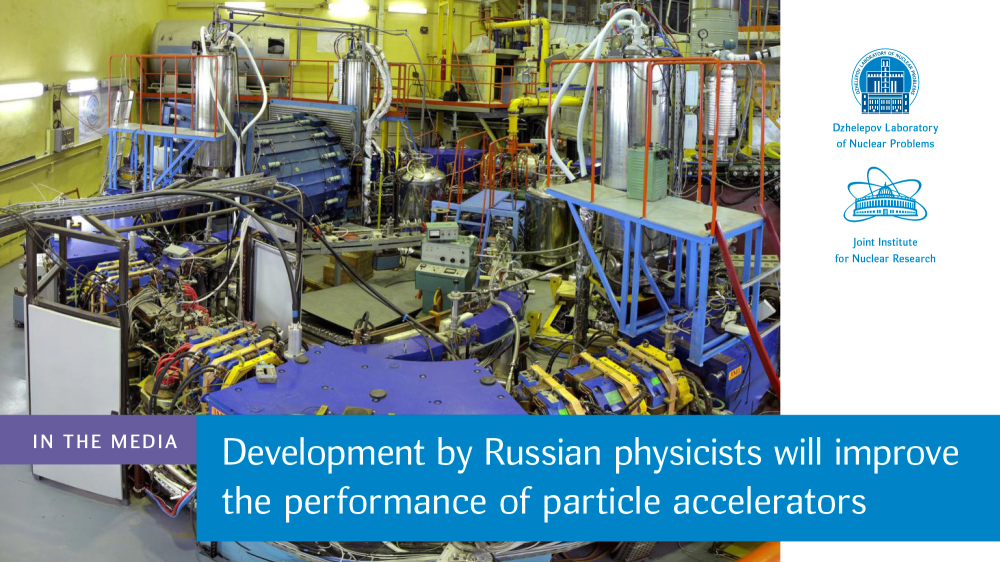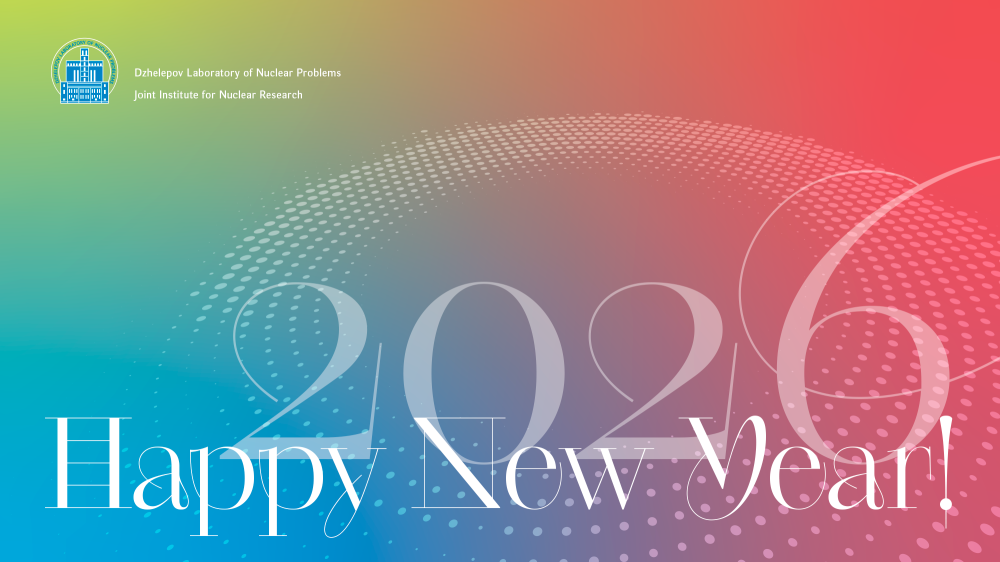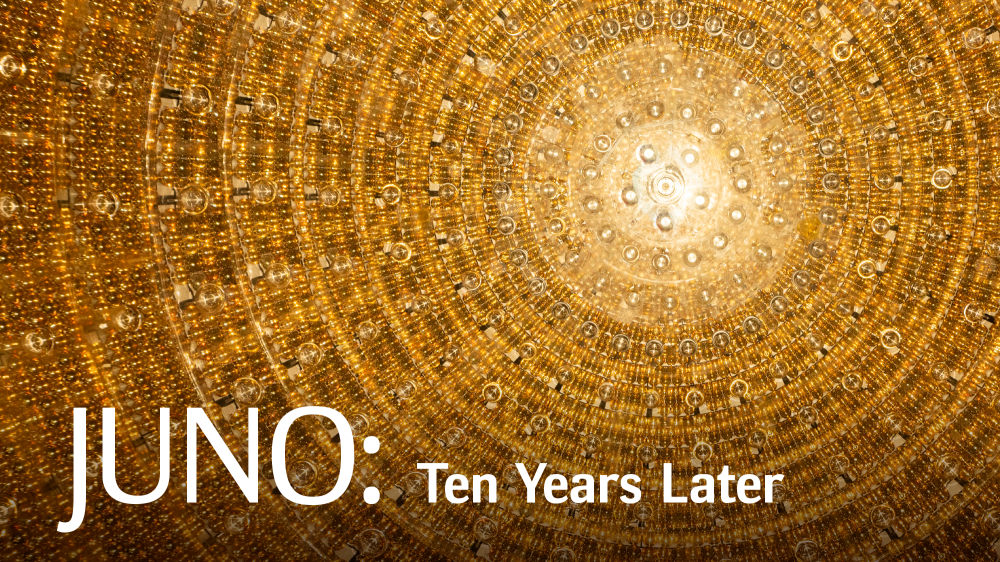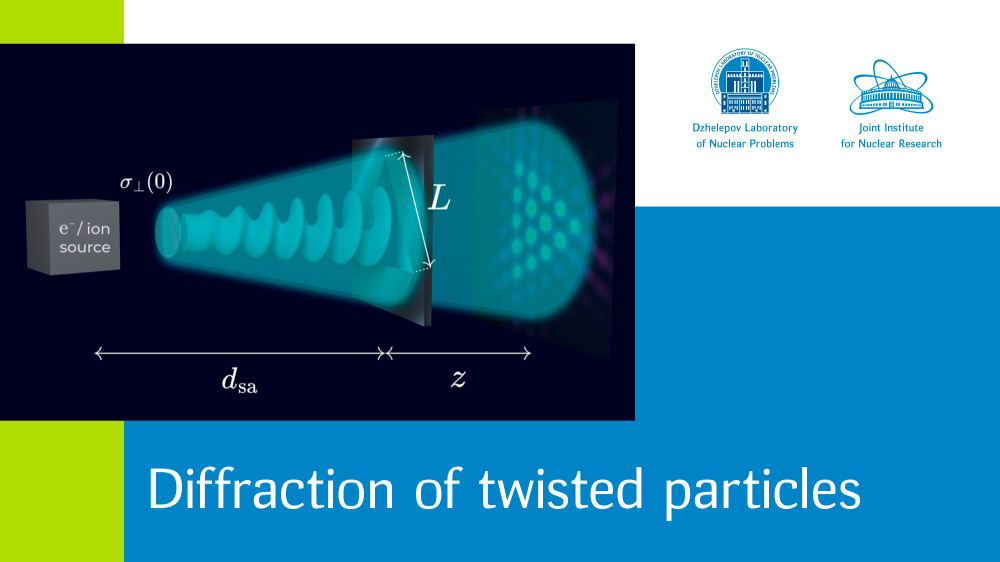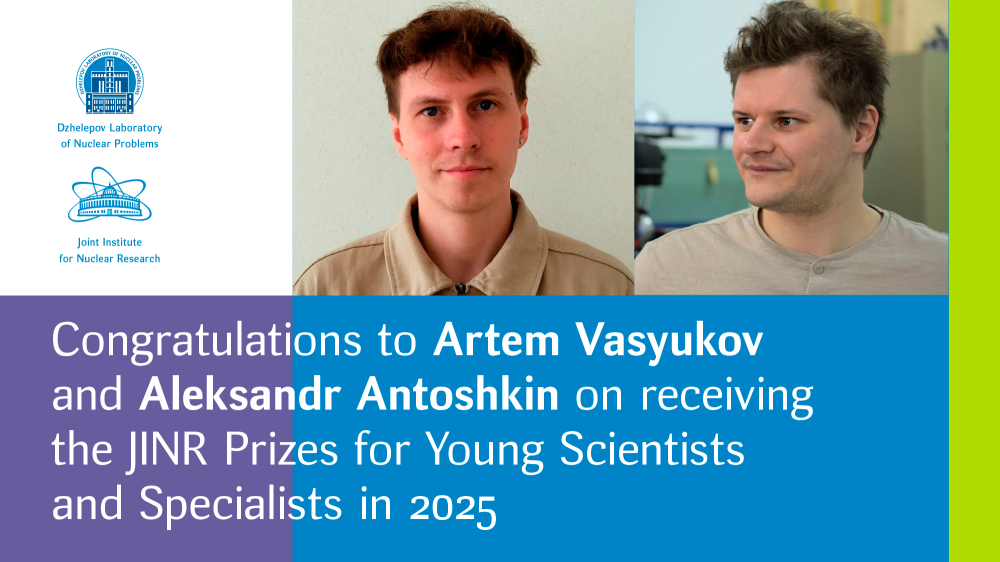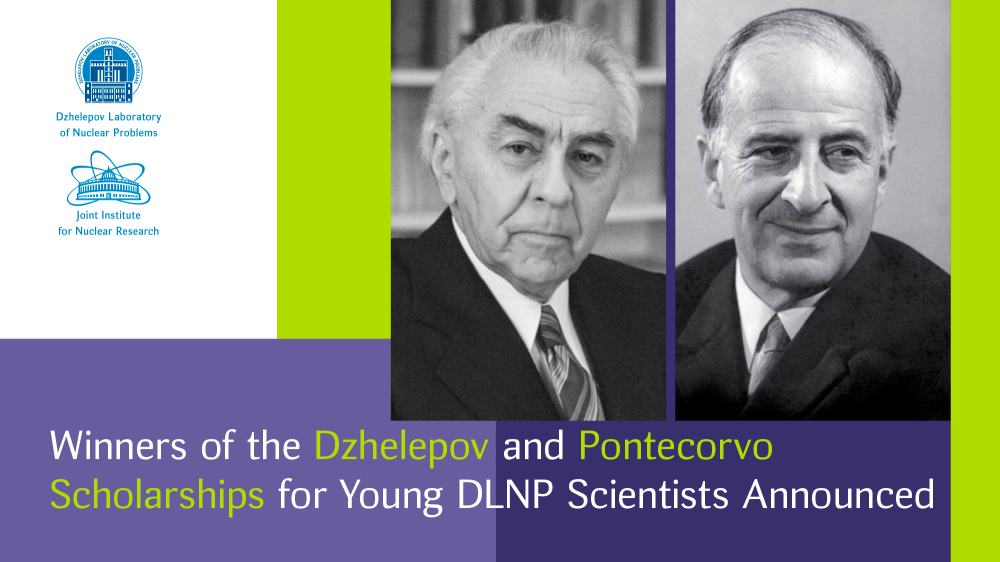News
03.02.2026
Today, on 3 February 2026, Yuri Ivanovich Davydov has successfully defended his dissertation at the meeting of the Dissertation Council of DLNP JINR. The topic of his work was “Development of precision wire detectors and creation of a facility for studying muon decays”.
03.02.2026
Last week, a hackathon on the development of a modelling software package for the Baikal-GVD experiment took place at the Laboratory of Nuclear Problems.
29.01.2026
The Russian news agency TASS published an article about Russian scientists from ITMO University and JINR Laboratory of Nuclear Problems who suggested the method that allows determining degree and direction of "twisting" of electron and ion beams.
26.01.2026
Interview with Artem Vasyukov, winner of the JINR Prize for Young Scientists and Specialists in 2025
In December 2025, the laureates of the JINR Prizes for Young Scientists and Specialists were announced. Artem Vasyukov, a junior researcher in the DLNP Department of Colliding Beams, received an Incentive Prize in the category “Experimental Research”. The DLNP Group of Scientific Communications asked Artem Olegovich about his work and future plans.
22.01.2026
At the end of December 2025, during a meeting of the DLNP Scientific and Technical Council, the results of the competition for the Bruno Pontecorvo Scholarship for Young DLNP Scientists in 2026 were announced. Ivan Suslov, junior researcher the DLNP Department of Nuclear Spectroscopy and Radiochemistry became the winner. The DLNP Group of Scientific Communications interviewed Ivan Suslov about his work, the experiments he participates in, and his plans for the scholarship year.
20.01.2026
In December 2025, the winners of the JINR Prizes for Young Scientists and Specialists were announced. Aleksandr Antoshkin, a junior researcher of the DLNP Department of Particle Physics, received the First Prize in the category "Experimental Research”. The DLNP Group of Scientific Communications talked to Aleksandr Igorevich about his work and future plans.
19.01.2026
The 27th meeting of the JUNO international collaboration is being held at Wuhan University (Wuhan city, Hubei province, China) from 19 to 23 January 2026.
30.12.2025
Dear friends! Our warmest wishes for the upcoming New Year 2026! We wish you a wonderful celebration with fluffy snow, a beautifully decorated New Year's tree, a bountiful table, and the warm wishes of your loved ones! May this year cross the threshold of your home, bringing with it happiness, success in all your endeavors, health, and joy! May every day on the new year's calendar be bright, memorable, and incredibly happy! Happy holidays!
26.12.2025
Video about JUNO, the world's largest liquid scintillator neutrino detector, located in Guangdong (China).
24.12.2025
On Tuesday, 23 December 2025, a joint article by researchers from DLNP JINR and ITMO University, titled "Diffraction by circular and triangular apertures as a diagnostic tool of twisted matter waves", was published in Physical Review A.
22.12.2025
We congratulate junior researchers of the Laboratory of Nuclear Problems, Artem Vasyukov and Aleksandr Antoshkin, on becoming winners in the competition for the 2025 JINR Prizes for Young Scientists and Specialists in the nomination "Experimental Research Works".
16.12.2025
Junior researchers of the Laboratory of Nuclear Problems, Aleksandr Boikov and Ivan Suslov, have been become winners of the competition for the Dzhelepov and Pontecorvo Scholarships for Young DLNP Scientists.




